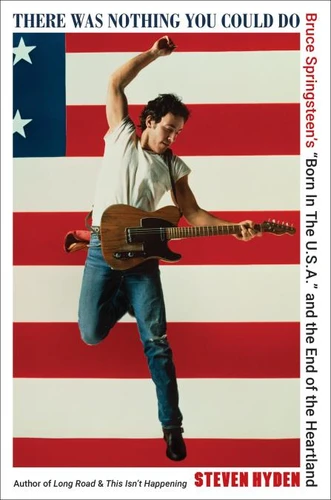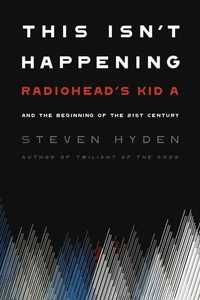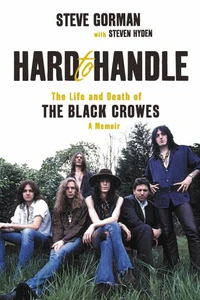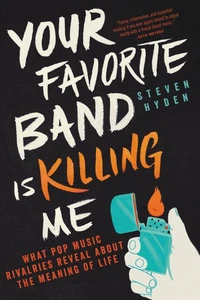There Was Nothing You Could Do. Bruce Springsteen's “Born In The U.S.A.” and the End of the Heartland
Par :Formats :
Disponible dans votre compte client Decitre ou Furet du Nord dès validation de votre commande. Le format ePub protégé est :
- Compatible avec une lecture sur My Vivlio (smartphone, tablette, ordinateur)
- Compatible avec une lecture sur liseuses Vivlio
- Pour les liseuses autres que Vivlio, vous devez utiliser le logiciel Adobe Digital Edition. Non compatible avec la lecture sur les liseuses Kindle, Remarkable et Sony
- Non compatible avec un achat hors France métropolitaine
 , qui est-ce ?
, qui est-ce ?Notre partenaire de plateforme de lecture numérique où vous retrouverez l'ensemble de vos ebooks gratuitement
Pour en savoir plus sur nos ebooks, consultez notre aide en ligne ici
- Nombre de pages288
- FormatePub
- ISBN978-0-306-83208-6
- EAN9780306832086
- Date de parution18/06/2024
- Protection num.Adobe DRM
- Infos supplémentairesepub
- ÉditeurDa Capo
Résumé
A thought-provoking exploration of Bruce Springsteen's iconic album, Born in the U. S. A.-a record that both chronicled and foreshadowed the changing tides of modern America On June 4, 1984, Columbia Records issued what would become one of the best-selling and most impactful rock albums of all time. An instant classic, Bruce Springsteen's Born in the U. S. A. would prove itself to be a landmark not only for the man who made it, but rock music in general and even the larger American culture over the next 40 years.
In There Was Nothing You Could Do, veteran rock critic Steven Hyden shows exactly how this record became such a pivotal part of the American tapestry. Alternating between insightful criticism, meticulous journalism, and personal anecdotes, Hyden delves into the songs that made-and didn't make-the final cut, including the tracks that wound up on its sister album, 1982's Nebraska. He also investigates the myriad reasons why Springsteen ran from and then embraced the success of his most popular (and most misunderstood) LP, as he carefully toed the line between balancing his commercial ambitions and being co-opted by the machine.
But the book doesn't stop there. Beyond Springsteen's own career, Hyden explores the role the album played in a greater historical context, documenting not just where the country was in the tumultuous aftermath of Vietnam and Watergate, but offering a dream of what it might become-and a perceptive forecast of what it turned into decades later. As Springsteen himself reluctantly conceded, many of the working-class middle American progressives Springsteen wrote about in 1984 had turned into resentful and scorned Trump voters by the 2010s.
And though it wasn't the future he dreamed of, the cautionary warnings tucked within Springsteen's heartfelt lyrics prove that the chaotic turmoil of our current moment has been a long time coming. How did we lose Springsteen's heartland? And what can listening to this prescient album teach us about the decline of our country? In There Was Nothing You Could Do, Hyden takes readers on a journey to find out.
In There Was Nothing You Could Do, veteran rock critic Steven Hyden shows exactly how this record became such a pivotal part of the American tapestry. Alternating between insightful criticism, meticulous journalism, and personal anecdotes, Hyden delves into the songs that made-and didn't make-the final cut, including the tracks that wound up on its sister album, 1982's Nebraska. He also investigates the myriad reasons why Springsteen ran from and then embraced the success of his most popular (and most misunderstood) LP, as he carefully toed the line between balancing his commercial ambitions and being co-opted by the machine.
But the book doesn't stop there. Beyond Springsteen's own career, Hyden explores the role the album played in a greater historical context, documenting not just where the country was in the tumultuous aftermath of Vietnam and Watergate, but offering a dream of what it might become-and a perceptive forecast of what it turned into decades later. As Springsteen himself reluctantly conceded, many of the working-class middle American progressives Springsteen wrote about in 1984 had turned into resentful and scorned Trump voters by the 2010s.
And though it wasn't the future he dreamed of, the cautionary warnings tucked within Springsteen's heartfelt lyrics prove that the chaotic turmoil of our current moment has been a long time coming. How did we lose Springsteen's heartland? And what can listening to this prescient album teach us about the decline of our country? In There Was Nothing You Could Do, Hyden takes readers on a journey to find out.
A thought-provoking exploration of Bruce Springsteen's iconic album, Born in the U. S. A.-a record that both chronicled and foreshadowed the changing tides of modern America On June 4, 1984, Columbia Records issued what would become one of the best-selling and most impactful rock albums of all time. An instant classic, Bruce Springsteen's Born in the U. S. A. would prove itself to be a landmark not only for the man who made it, but rock music in general and even the larger American culture over the next 40 years.
In There Was Nothing You Could Do, veteran rock critic Steven Hyden shows exactly how this record became such a pivotal part of the American tapestry. Alternating between insightful criticism, meticulous journalism, and personal anecdotes, Hyden delves into the songs that made-and didn't make-the final cut, including the tracks that wound up on its sister album, 1982's Nebraska. He also investigates the myriad reasons why Springsteen ran from and then embraced the success of his most popular (and most misunderstood) LP, as he carefully toed the line between balancing his commercial ambitions and being co-opted by the machine.
But the book doesn't stop there. Beyond Springsteen's own career, Hyden explores the role the album played in a greater historical context, documenting not just where the country was in the tumultuous aftermath of Vietnam and Watergate, but offering a dream of what it might become-and a perceptive forecast of what it turned into decades later. As Springsteen himself reluctantly conceded, many of the working-class middle American progressives Springsteen wrote about in 1984 had turned into resentful and scorned Trump voters by the 2010s.
And though it wasn't the future he dreamed of, the cautionary warnings tucked within Springsteen's heartfelt lyrics prove that the chaotic turmoil of our current moment has been a long time coming. How did we lose Springsteen's heartland? And what can listening to this prescient album teach us about the decline of our country? In There Was Nothing You Could Do, Hyden takes readers on a journey to find out.
In There Was Nothing You Could Do, veteran rock critic Steven Hyden shows exactly how this record became such a pivotal part of the American tapestry. Alternating between insightful criticism, meticulous journalism, and personal anecdotes, Hyden delves into the songs that made-and didn't make-the final cut, including the tracks that wound up on its sister album, 1982's Nebraska. He also investigates the myriad reasons why Springsteen ran from and then embraced the success of his most popular (and most misunderstood) LP, as he carefully toed the line between balancing his commercial ambitions and being co-opted by the machine.
But the book doesn't stop there. Beyond Springsteen's own career, Hyden explores the role the album played in a greater historical context, documenting not just where the country was in the tumultuous aftermath of Vietnam and Watergate, but offering a dream of what it might become-and a perceptive forecast of what it turned into decades later. As Springsteen himself reluctantly conceded, many of the working-class middle American progressives Springsteen wrote about in 1984 had turned into resentful and scorned Trump voters by the 2010s.
And though it wasn't the future he dreamed of, the cautionary warnings tucked within Springsteen's heartfelt lyrics prove that the chaotic turmoil of our current moment has been a long time coming. How did we lose Springsteen's heartland? And what can listening to this prescient album teach us about the decline of our country? In There Was Nothing You Could Do, Hyden takes readers on a journey to find out.







